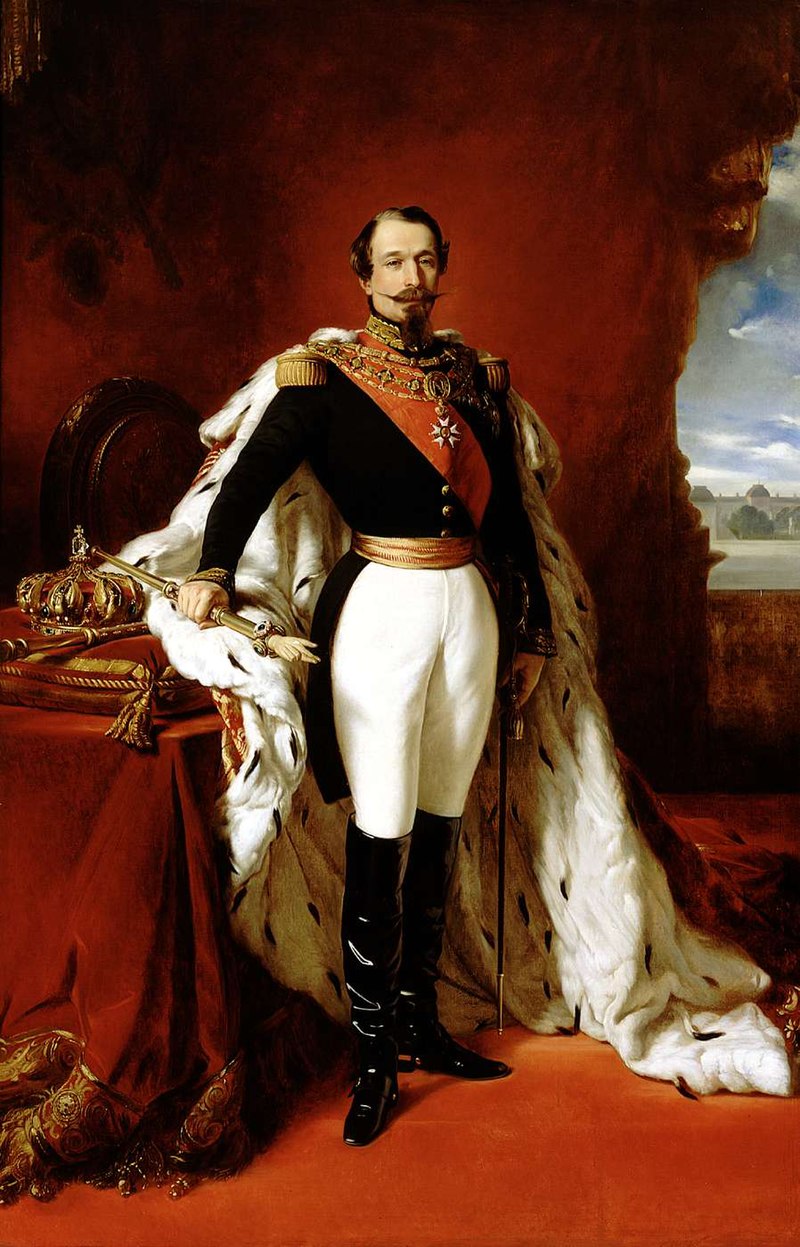
This week in 1852, Charles-Louis Napoléon Bonaparte became Emperor of France. His father was the younger brother of the original Napoleon. And his mother was the daughter of the famous Josephine – the long-term mistress and eventually wife of the first Napoleon — by her other (first) husband. To capitalize on his famous uncle’s reputation, the new emperor took the name Napoleon III. (In theory, the first Napoleon’s four-year-old son had ruled for about two weeks in 1815, as Napoleon II.)
Napoleon III had been elected President of France in 1848, but by 1852, he had termed out and so couldn’t be reelected. So proclaiming the Second French Empire was his alternative to retiring.
The emperor actually supported popular sovereignty around Europe, as well as national self-determination – like the original Napoleon. He also modernized the French economy. He stimulated the stock marketing, vastly increased France’s railway network, built roads and canals, and invested in education. Napoleon III also increased French power – but not enough. A giant was rising to the east, as Prussia worked to unite the German principalities into a single country. The Franco-Prussian War broke out in 1870, and the emperor promptly lost to the forces of the Prussian king and his mighty chancellor, Otto von Bismarck. Napoleon III was captured and dethroned, leading to the establishment of the French Third Republic – as well as the German Empire (with the former Prussian king as its first Kaiser, or Emperor). Napoleon III died in exile in 1873.

0 Comments